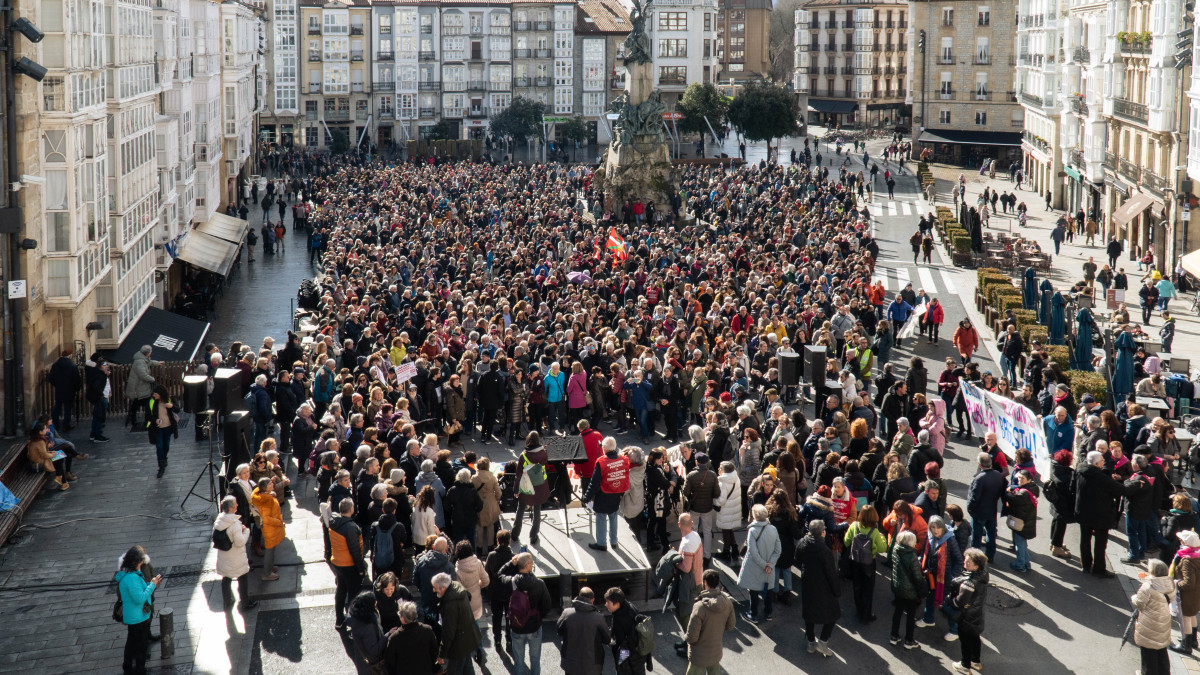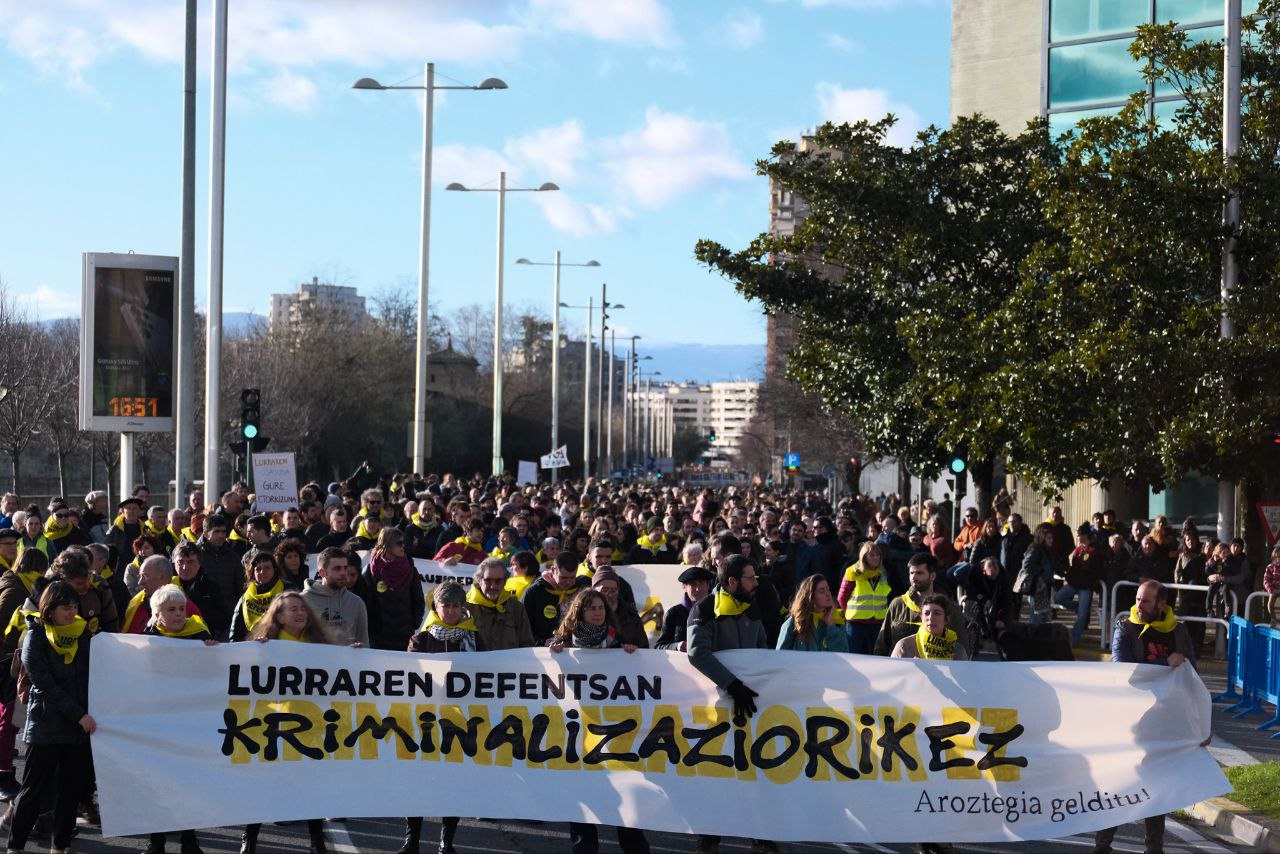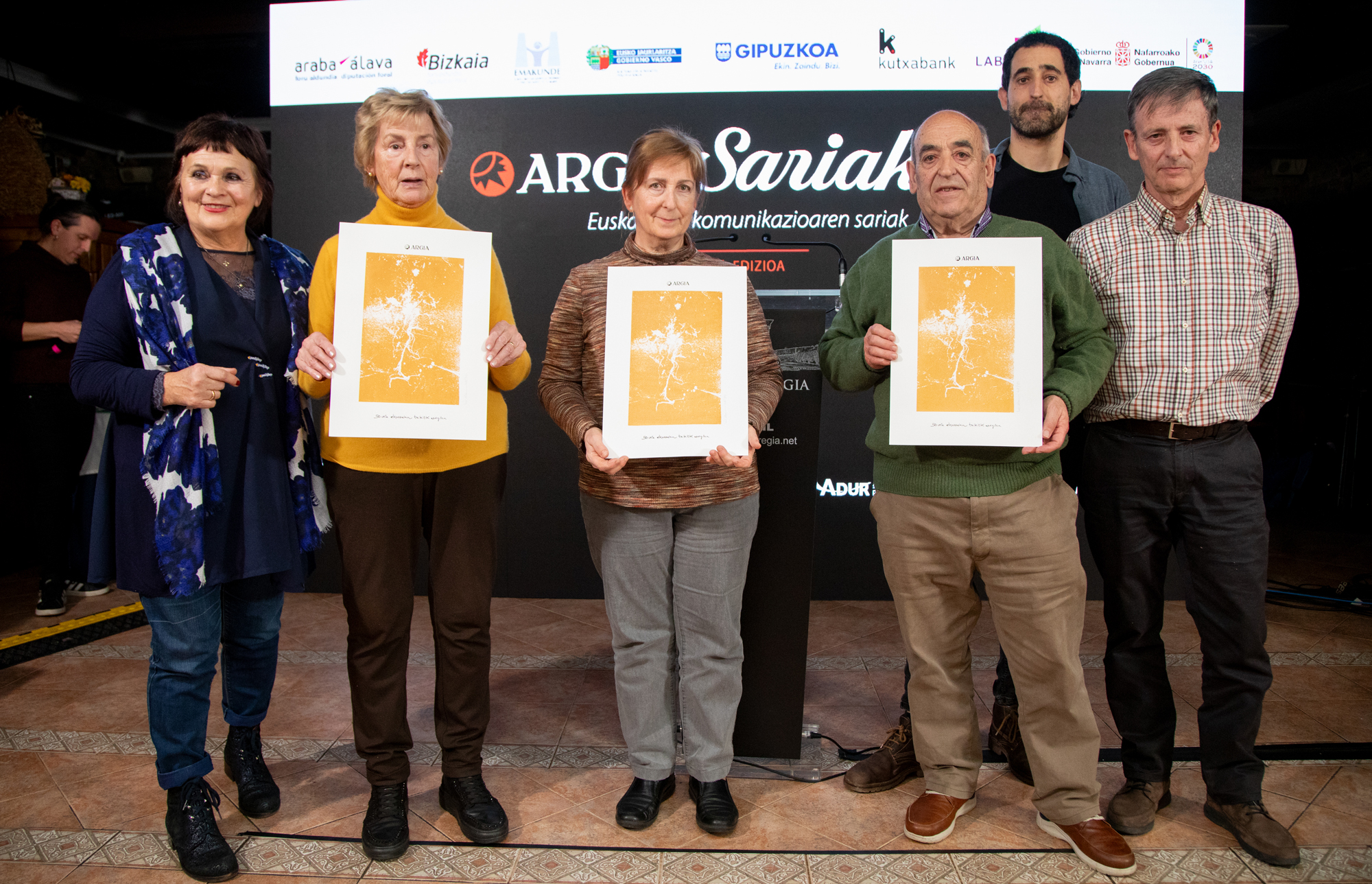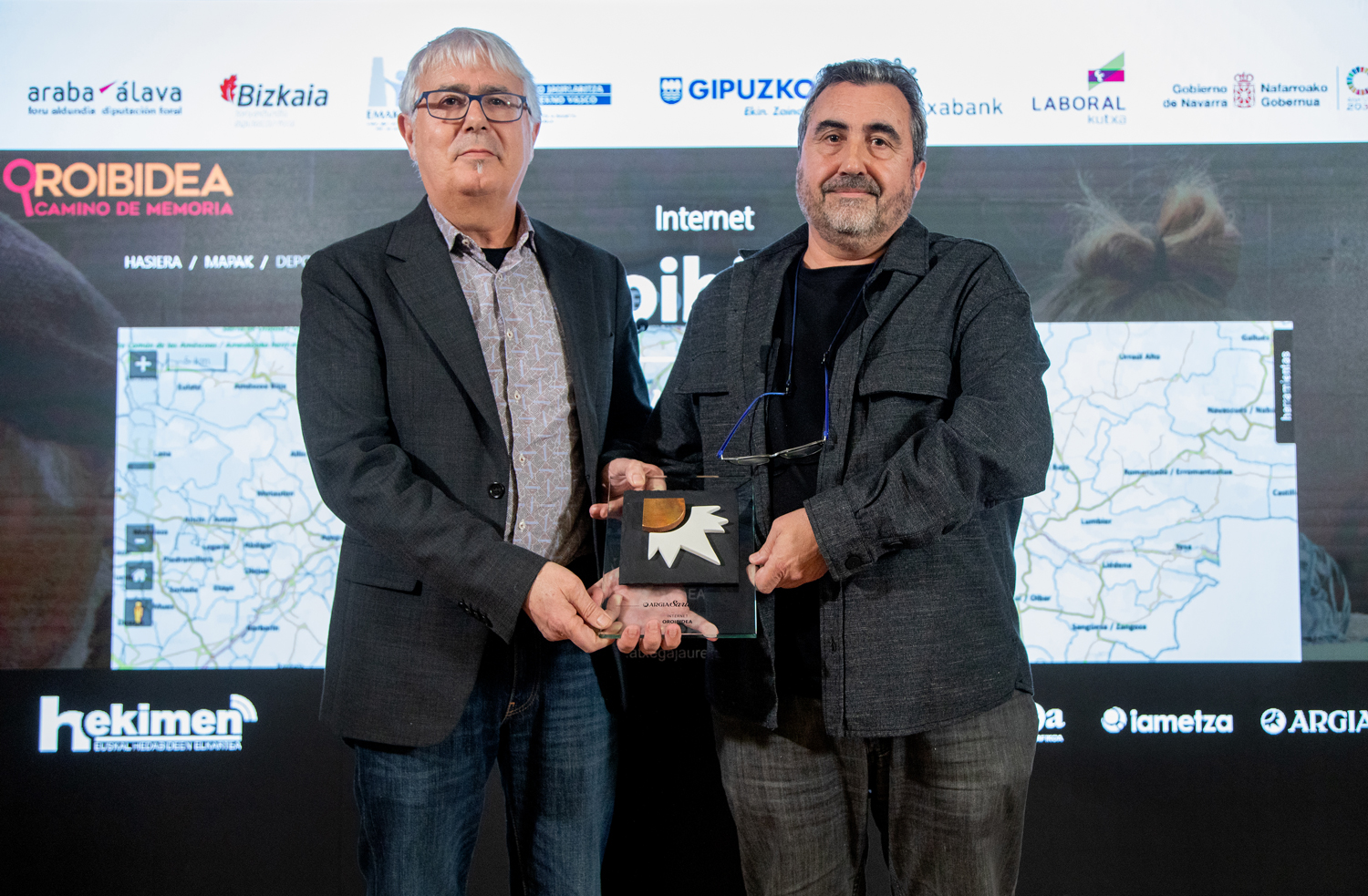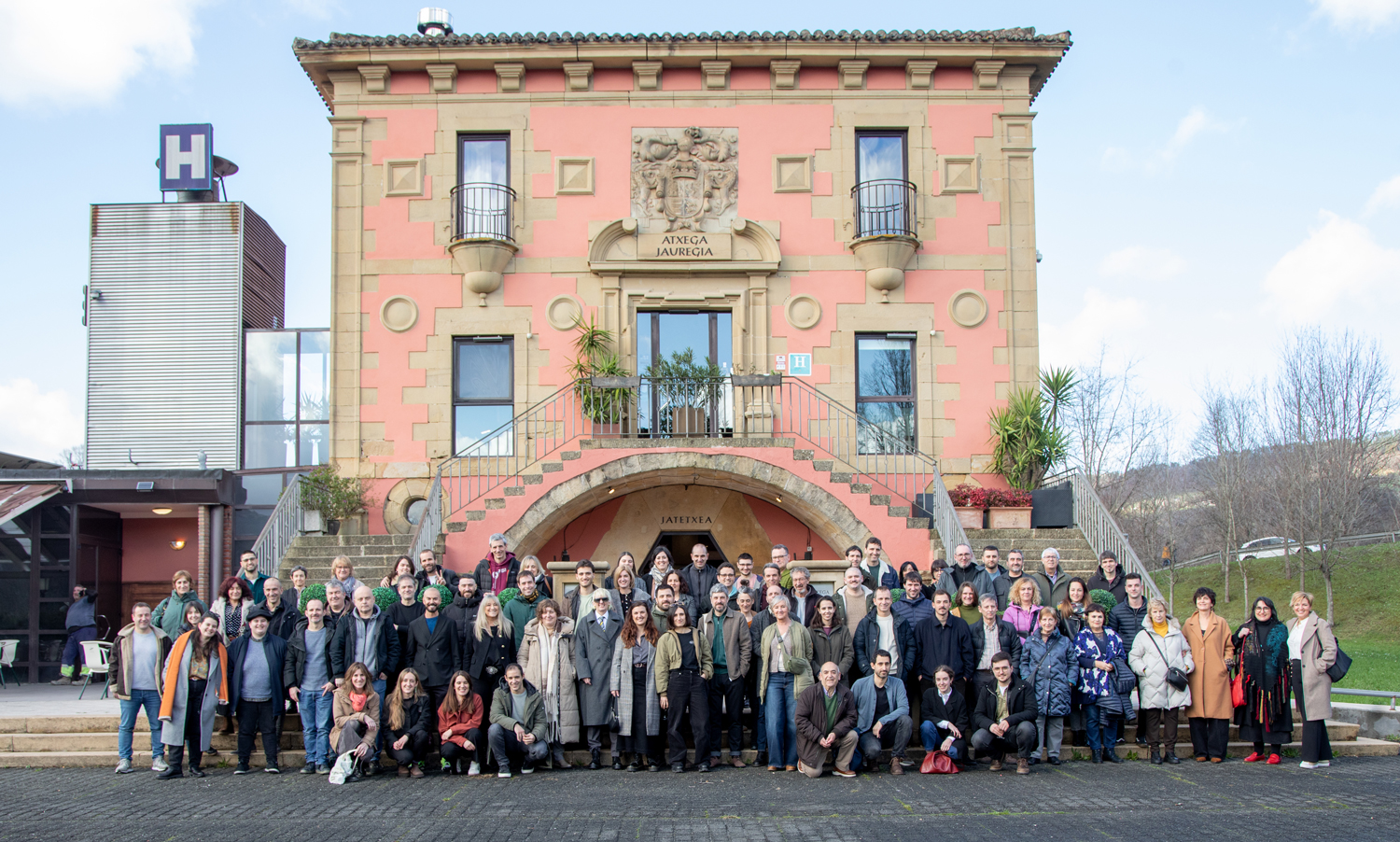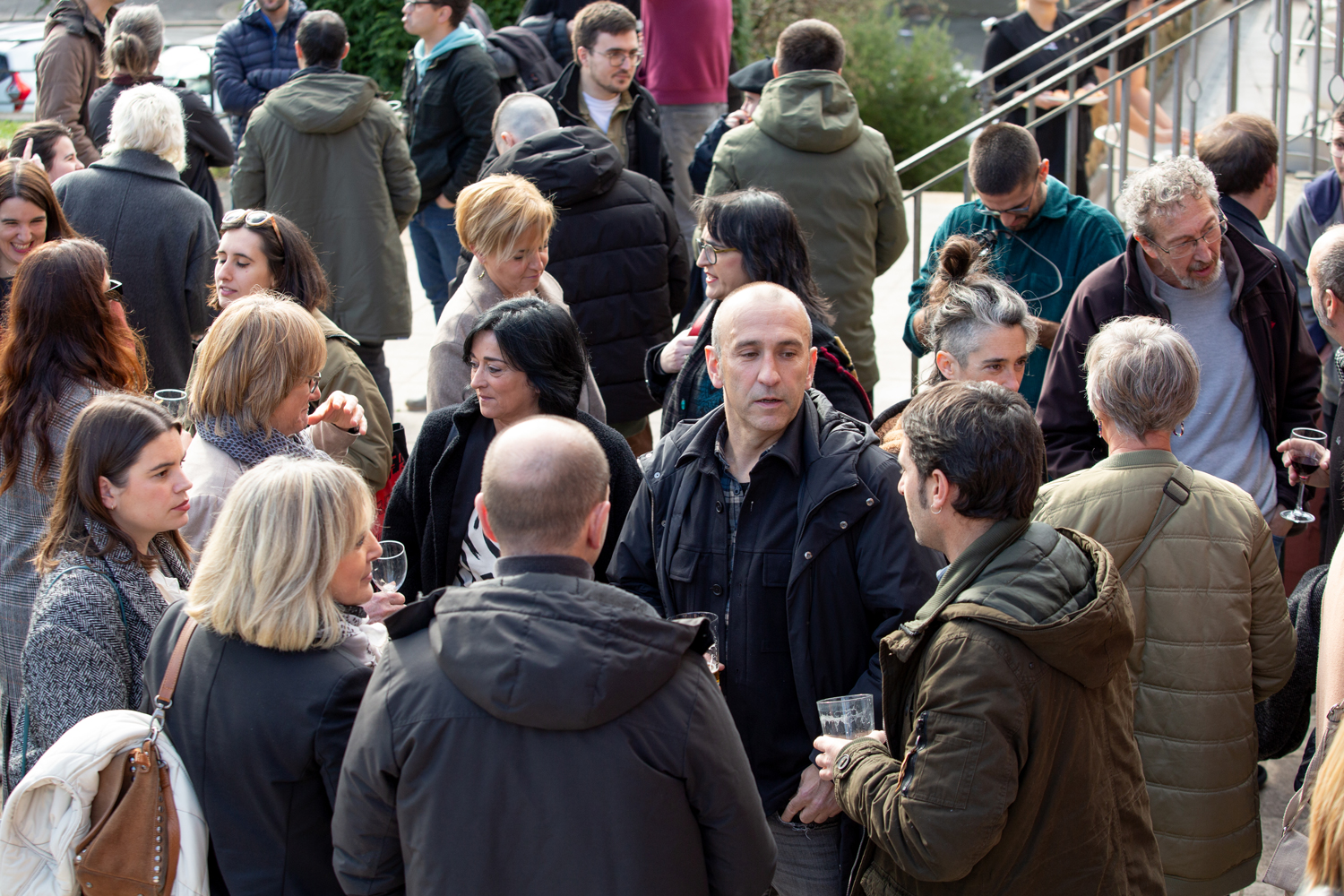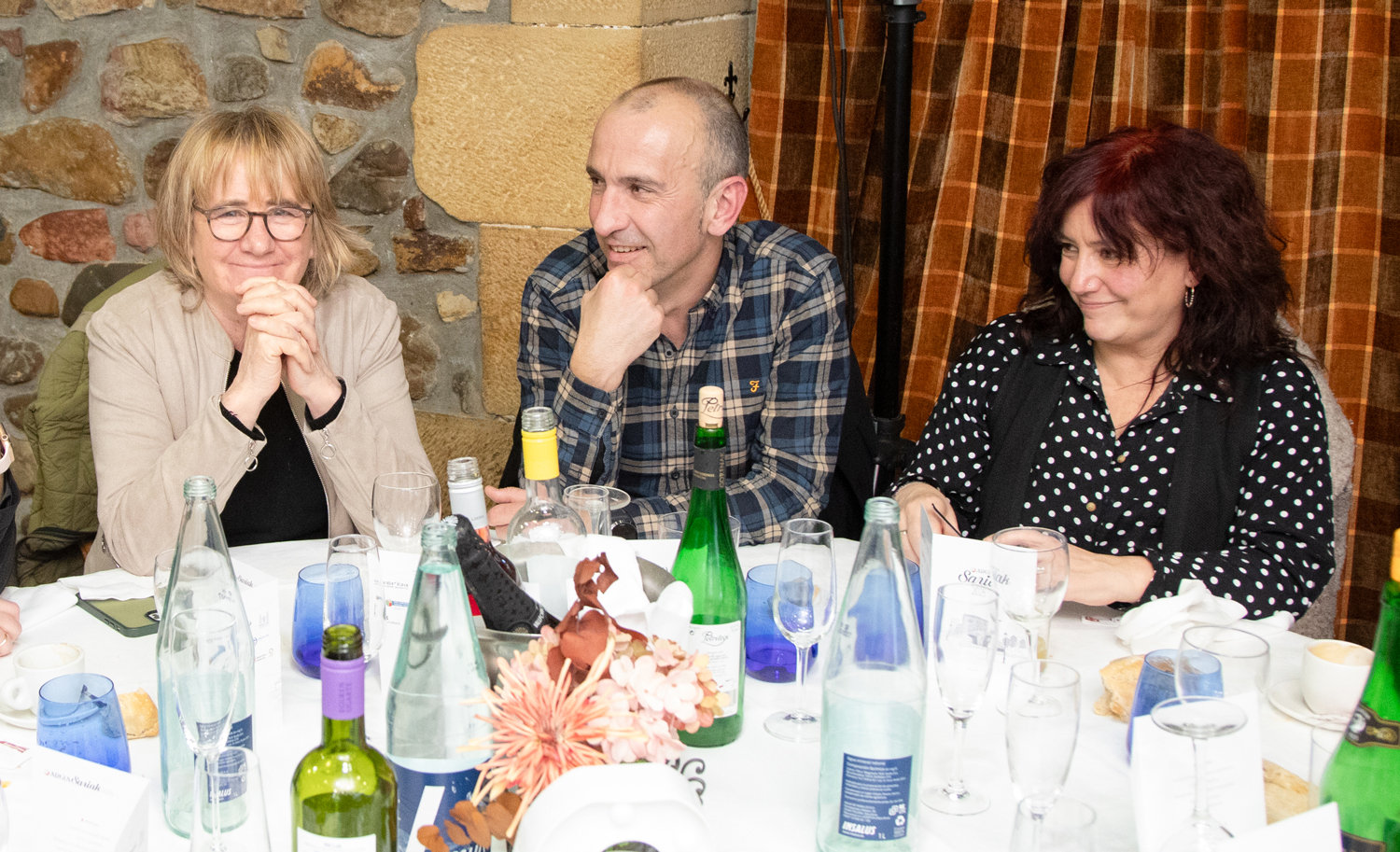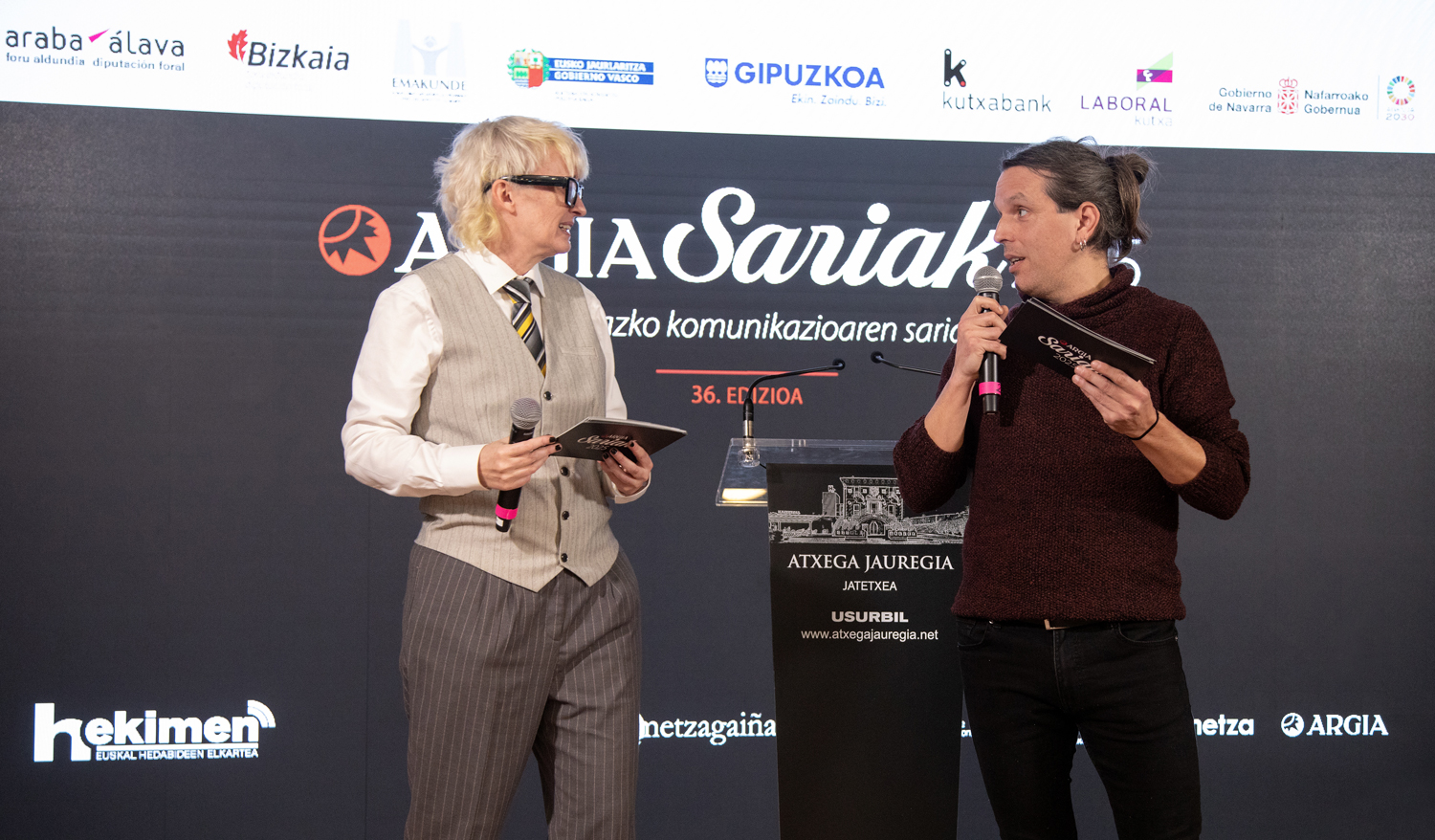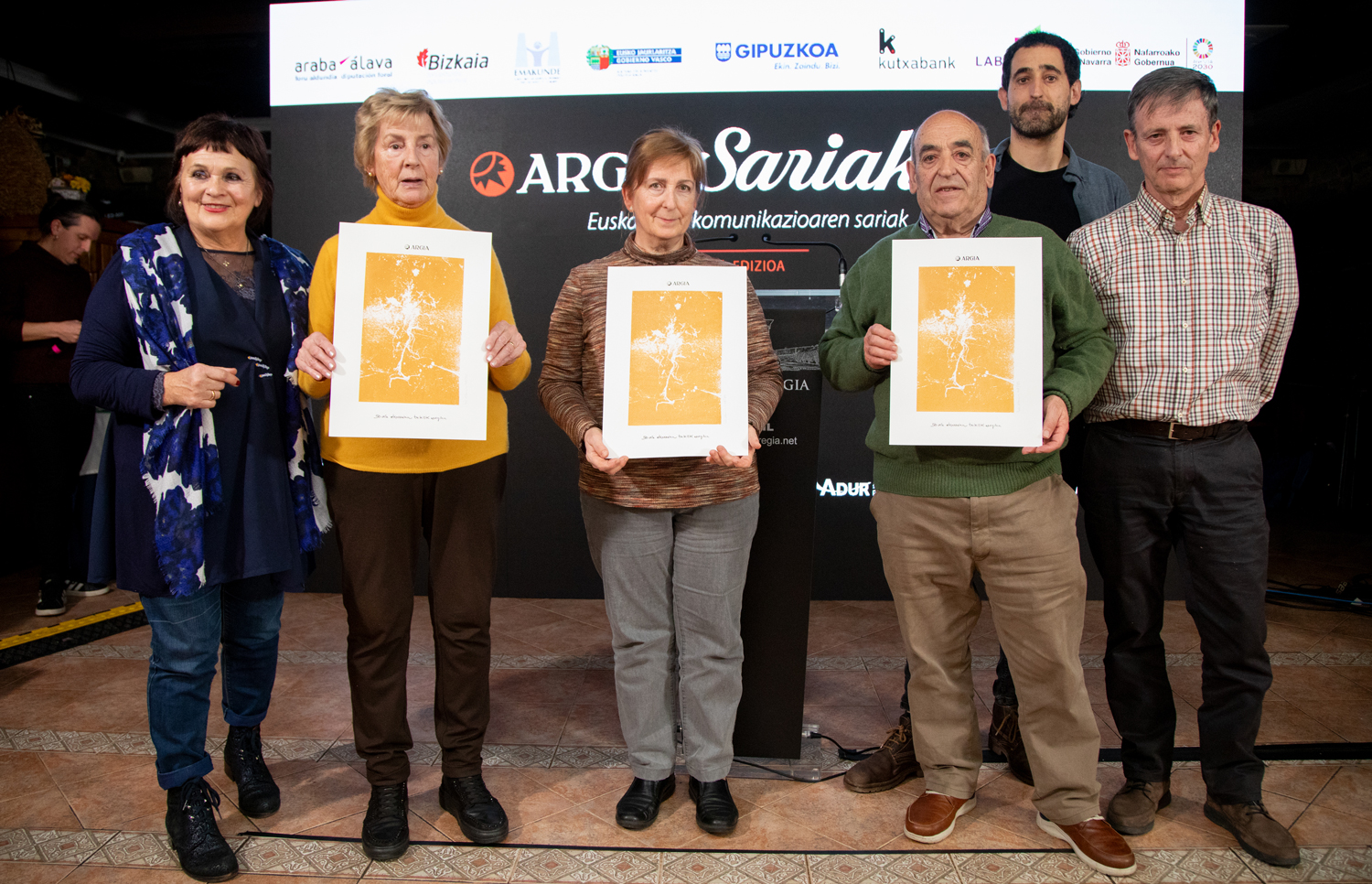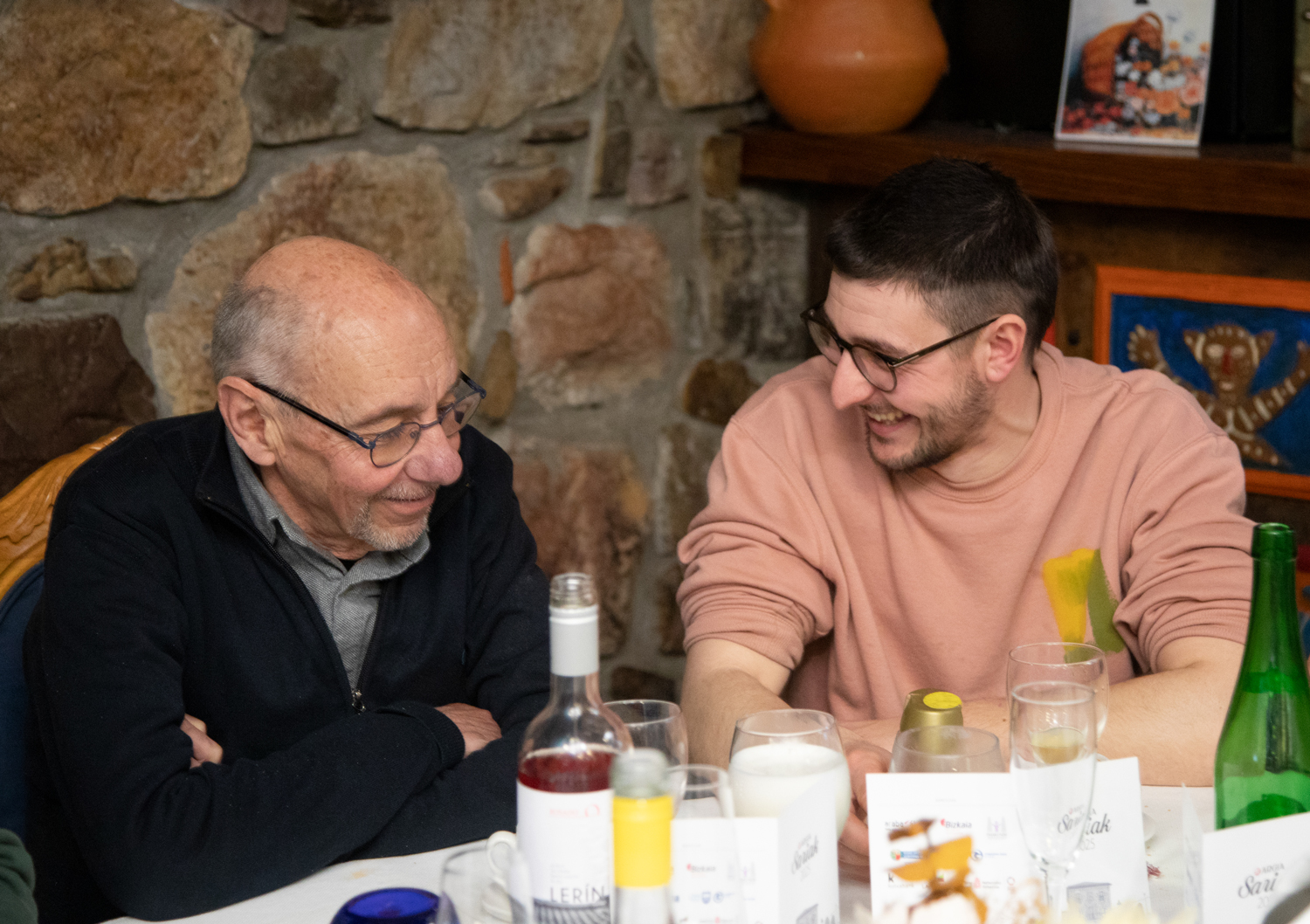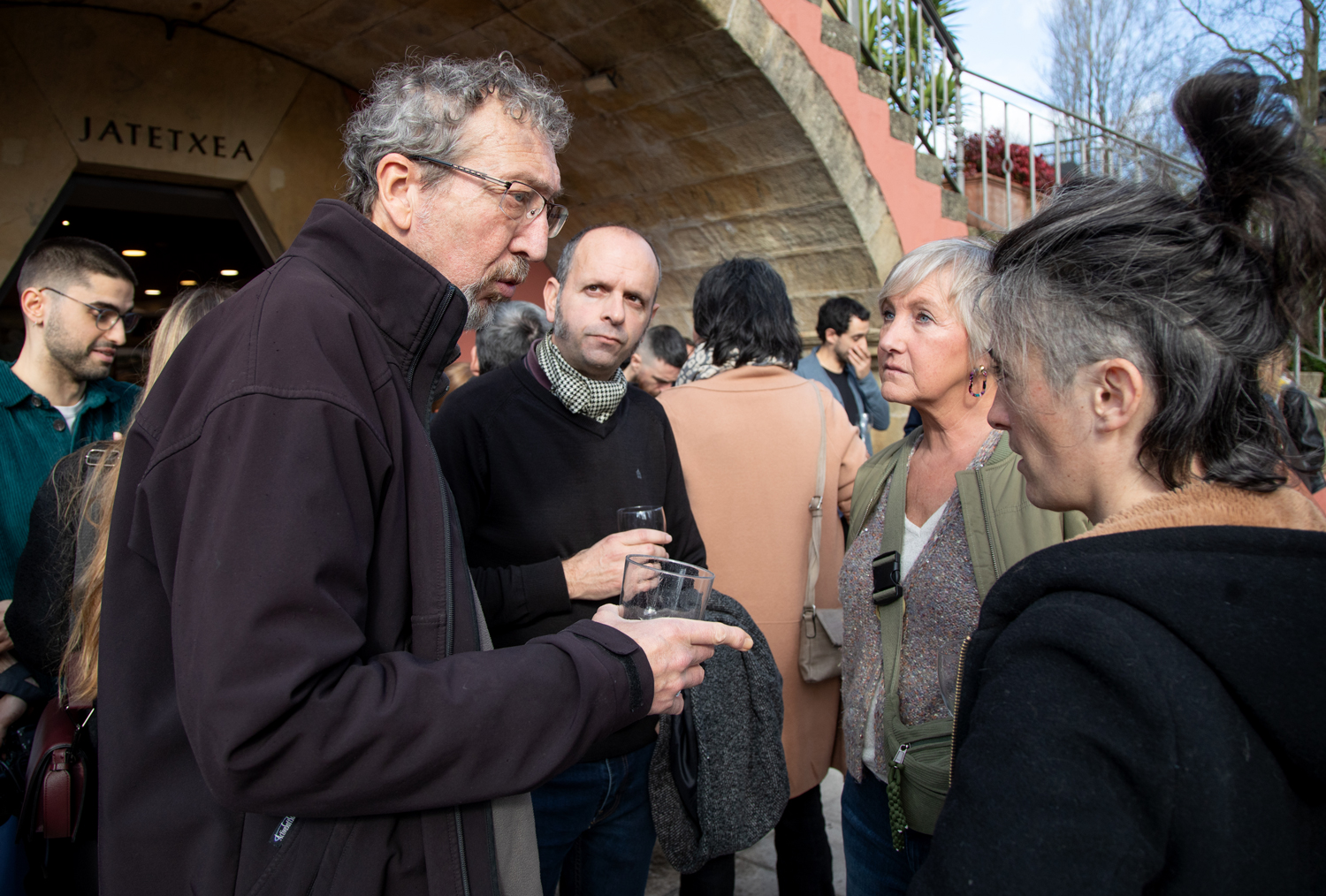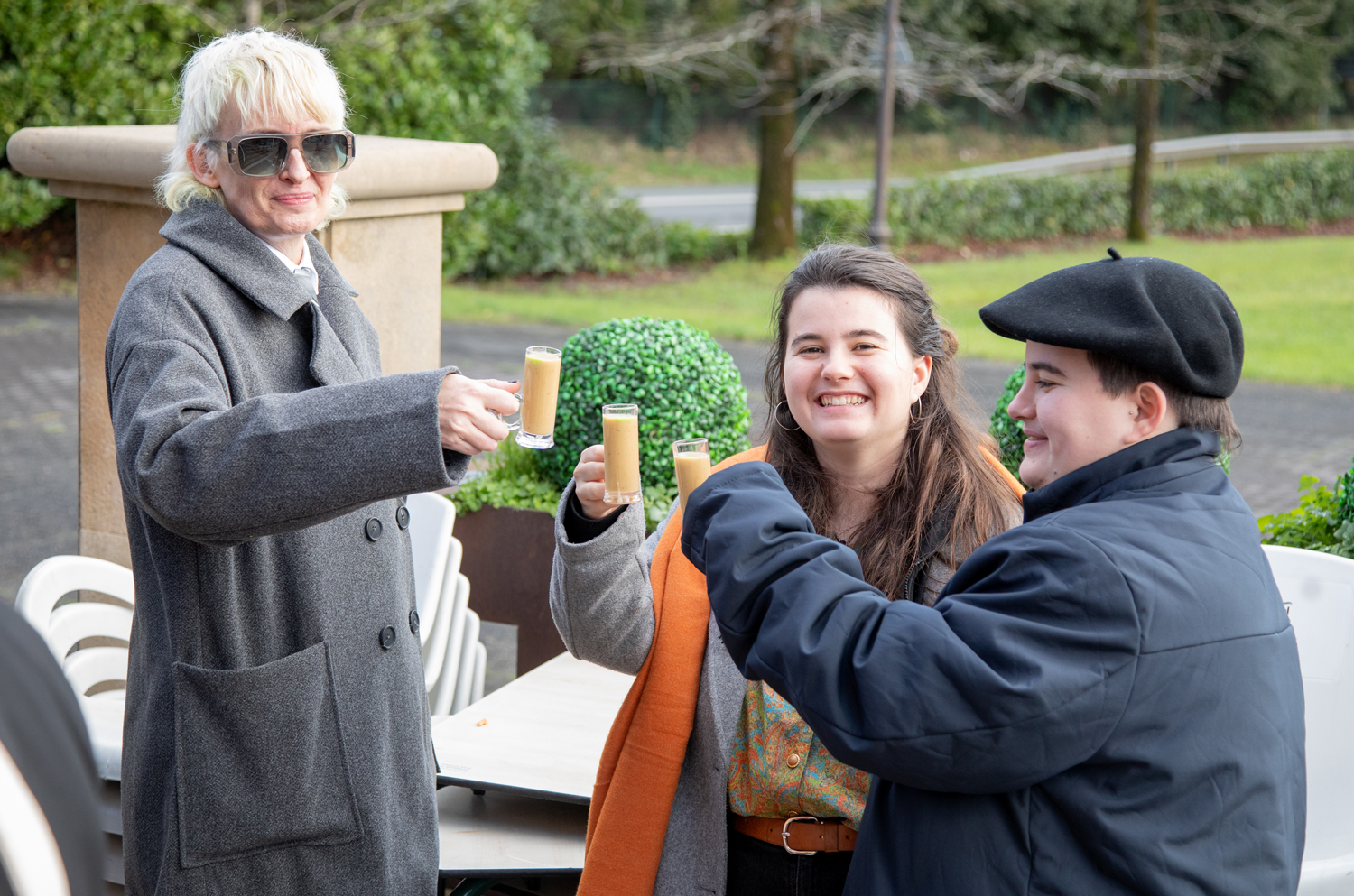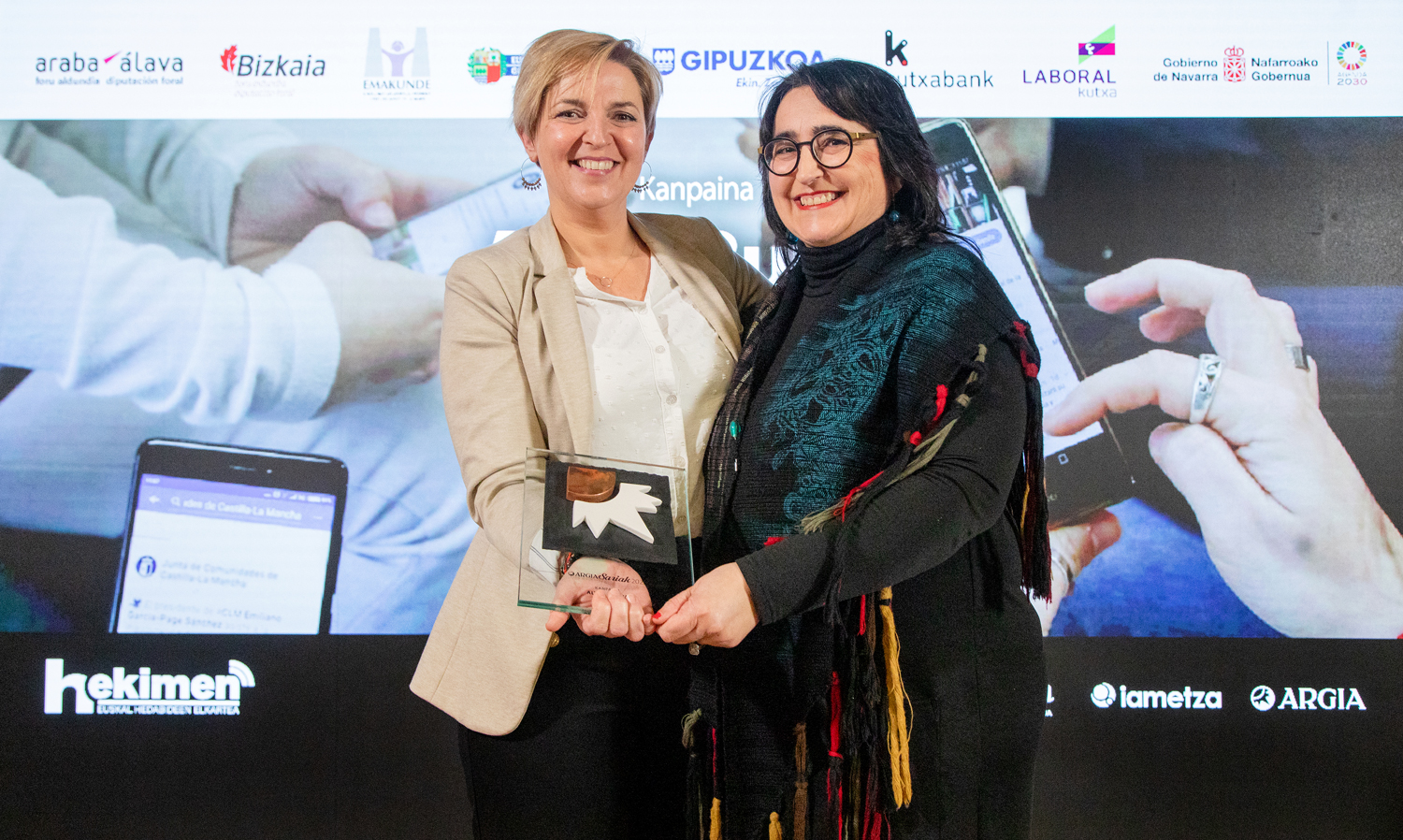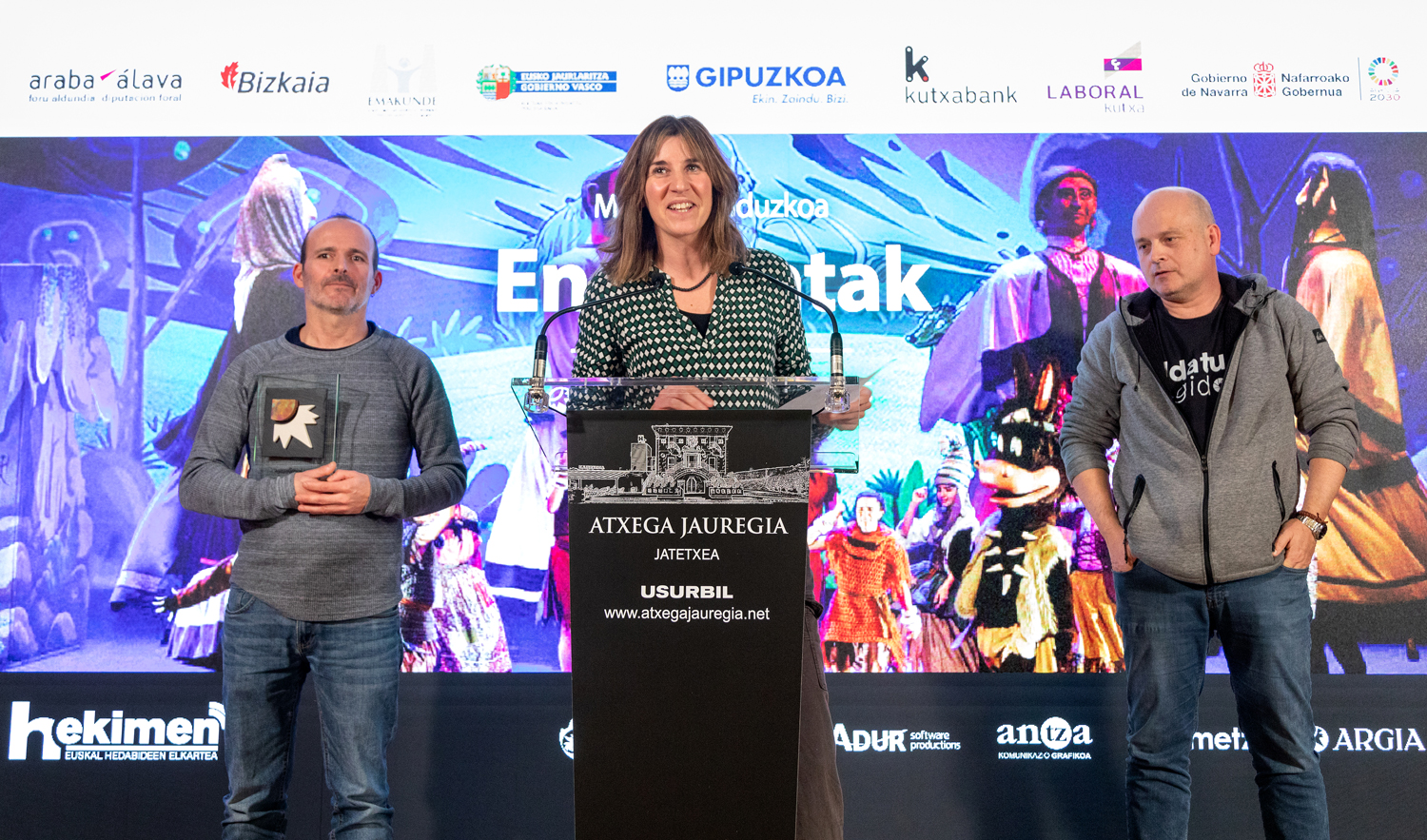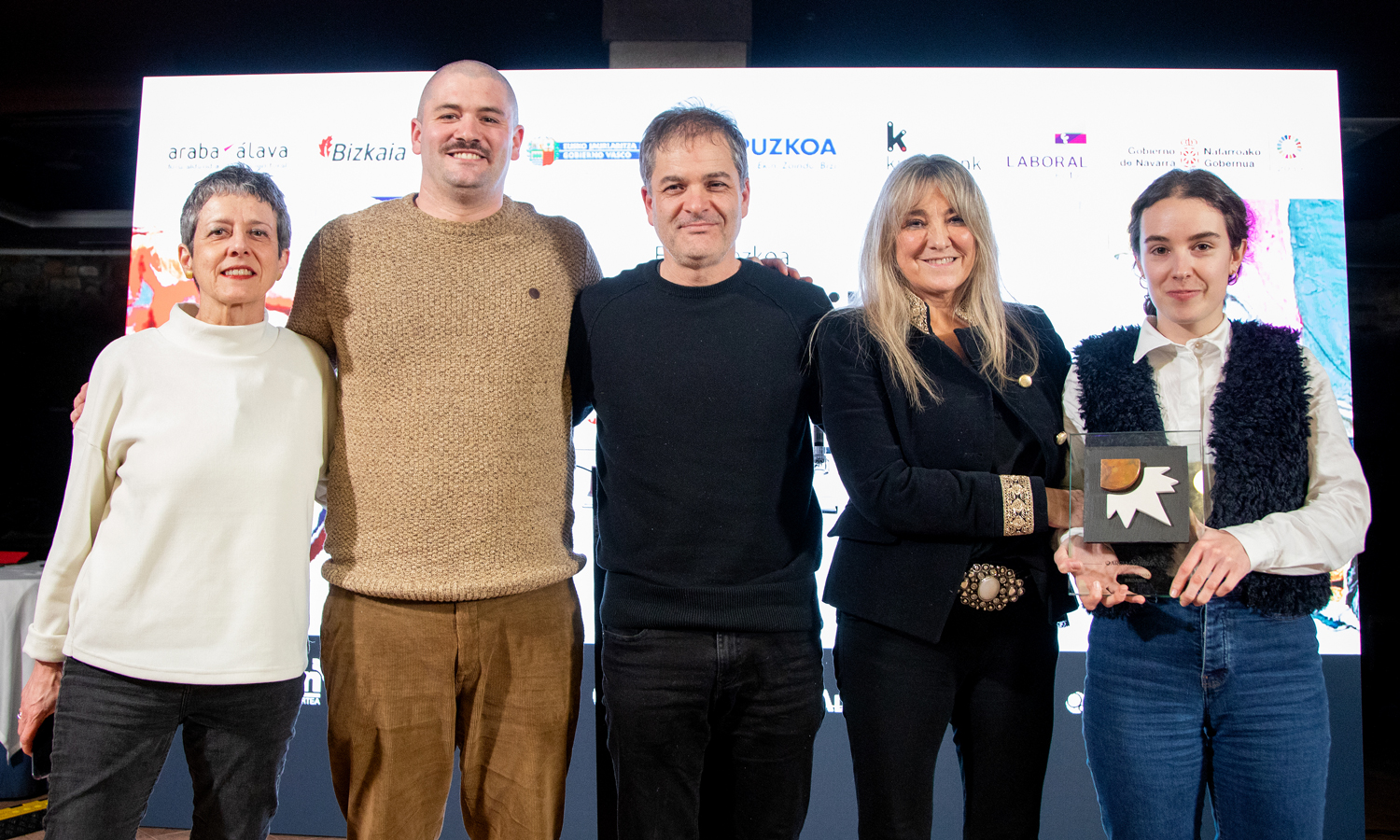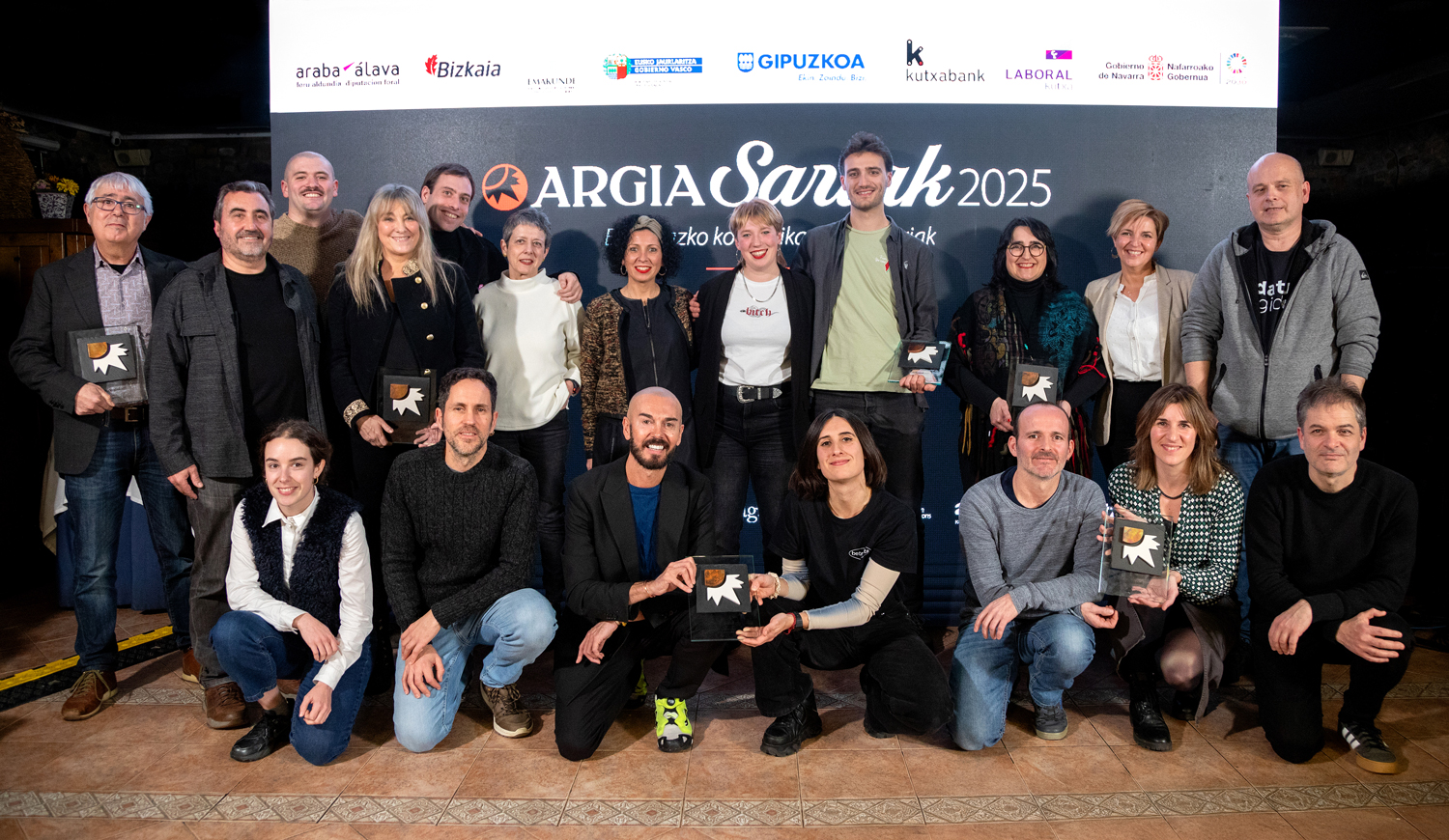"Many generations of doctoral students and researchers have been living silently"
- Researchers Eider Saragueta (Ibarra, 1989) and Beñat Garaio (Vitoria-Gasteiz, 1990) will give the conference "The mental health of researchers: keys and solutions". Saragueta is a PhD in Education and Garaio in Sociolinguistics. We've been with them to learn more about the conference.

At Ikergazte Congress you will talk about the mental health of researchers. Is this an issue that is not sufficiently worked out?
Saragueta: Overall, mental health has become more visible in recent years, I would say that the pandemic has influenced it. But much remains to be done. Several studies have also been carried out to work on the mental health of researchers, such as those related to depression and anxiety. But I would say that much remains to be done in our country. With research, there's more chance of focusing on what's going on.
Garaio: In line with what Eider said, many generations of doctoral students and researchers have been living quietly and it was considered a kind of toll to pay. The times have changed and it is not acceptable that this suffering should be accepted as such, for which the situation must be known and interventions implemented. The UPV OPIK group is conducting a study to analyze the mental health situation of doctoral students and it can be said that they are making their way. On the other hand, last March, from the Department of Linguistics and Basque Studies of the UPV/EHU, I was proposed to hold a seminar on this subject in view of the doctoral students of the doctoral program, and together with Yolanda González, partner of the research group OPIK and psychologist Leire Pinedo, we held a nice session. I would say that this was the first time such a conference had been held in us.
What are the indicators that affect mental health?
Saragueta: Mental health is linked to many health conditions, not abruptly. One indicator may be stress, but not only that related to the thesis, but also the situation of this individual in their environment. Health conditions may be linked to the environment: if we live in a village or in a city. Feeding also influences: What kind of food do we have? Do we have free time? This will be subject to the remuneration we received. Gender is also a major conditioning factor, because they socialize us differently and because the pressure we receive is different.
"The job uncertainty of the future, the great burden on the job, the lack of decent pay to live, the pressure to publish constantly... can lead to the feeling of shortness of breath."
Eider Saragueta
So, if we have a pretty stable situation in our work, we have a fluid or cordial relationship with our coworkers, if the environment in which we live is nice, if we can eat healthy food and enjoy free time, that will directly affect our mental health.
But our profession can condition many of them. That is, that the job uncertainties of the future, the great workload (in many cases more than that of a doctoral student), do not have a dignified remuneration to live (having to share floor and not want), the pressure of constant publication can cause a sensation of lack of breath, uncontrollable worry, sleep problems, need to verify something repeatedly, feeling tired, feeling of guilt, difficulty concentrating, ideas of suicide.
You will also mention the warning signs.
Saragueta: These would be the warning signs, that is, prolonged sadness, excessive tiredness, sleep problems, appetite or sexual desire, constant worry in the head... there are more, but most are related to symptoms of anxiety or depression.
While I was doing the thesis I felt a lot of them, but I didn't know what was going on. Now I see it differently and if there is someone who is like that in the area I say clearly that he is not well and that he has to take care of him, that he has to ask for help. Many of the alarm signals felt during the thesis have blurred, but if the conclusions are not worked out, progress cannot be made. Today, if I feel like a professor, I place much more emphasis on some sign of this kind and try to fix it as soon as possible, but now, for example, I have more economic capacity to do so.
Garaio: In my case, of the 5 years that the thesis lasted, I spent almost 4 years of discomfort, with great difficulties to get through the day to day and totally related to the near future. I've already received alarm signals, but I wasn't able to identify them in time, and then I found it very difficult to manage my emotional situation. Fortunately, and with a lot of work, I started recovering the thesis a few days after having deposited the thesis and since then I feel that I am quite good, well or very well, I can identify inside Beñat, the one before the thesis, although in many things I am a totally different person. Sometimes I get alarm signals, almost always related to the work overload we have in the field of research and in today's society, but I have another emotional situation and instruments to regulate myself at the moment.
The situation is not good. That's what the data says.
"I spent almost four of the five years that the thesis lasted"
Beñat Garaio
Garaio: I will bring the data that Yolanda González shared, despite the fact that in recent years many worrying indicators and statistics have appeared in different media. Studies by the research team OPIK show that, although these results are still provisional, depression is concentrated in 38% of doctoral students and anxiety in 50%. Likewise, the MHI-5 Index, which is an indicator of mental health, is 51.1 points for doctoral students from the UPV/EHU, when in the Autonomous Community of the Basque Country this figure is 74.9%. There is a difference.
Your aim is to provide solutions to change and improve the situation. Always constructively.
Saragueta: We are seeing in society that the issue is increasingly important and, for example, in the UPV/EHU there is a psychological care service. However, there is still a long way to go. I believe that in many areas there is a great lack of awareness among thesis managers. There is a significant generational change between doctoral candidates and managers that impacts the worldview. In addition, the uncertainties, doubts or concerns that a novice researcher may have should be monitored and provide the space they deserve. One step is to give space to the topic at a congress like Ikergazte. Many may not know very well what happens to them, but they know that they have trouble sleeping, that they have radical mood changes, or that they have constant worry. It is important to be aware of the symptoms associated with mental health and the need to address them as soon as possible.
You want to share opinions with researchers coming to Congress.
Garaio: We have a one-hour space for the IkerGaztea session and, as often happens in these cases, we mean and incorporate many things. In any case, we attach importance to everyone sharing their experiences and counting the testimonies that will bring us together. As important as counting is listening and we believe that it will benefit us all in order to put in a healthy way what we have done so far and to direct the forces in the future towards solutions.
Why are important meeting spaces like Ikergazte?
Saragueta: These kinds of meeting spaces allow on one hand to meet people. Getting to know people from very different backgrounds allows us to learn how they research, but above all we can learn and share how they manage their daily lives. In addition, in daily life we are very separated the lines and topics of research and this possibility of meeting allows us to develop this collectivity or group character. And when we feel part of something, we can influence our mental health. Ikergazte offers the opportunity to meet people from very different disciplines and offer a different look to their work. Perhaps I will not understand the whole presentation on theoretical physics, but the authors make a great effort to divulge and when it comes to eating with the person who made the presentation I will be able to offer my look and surely it will be unexpected because I belong to another field. I think that is what makes Ikergazte special, the synergy that emerges among researchers from different fields.
They were all in food and drink, seemingly cheerful, but some were nervous between snacks and appetizers. He would receive the prize for the second time, but he would be the first to have it in his hands. And I was nervous because the reminder had to get to the office, damn it.... [+]
Even if things change quickly and vividly, some things don’t change: The Light Awards event is one of them. This is what an outside journalist who has come to this chronicler in need has told him, along with the fact that LUZ has changed a lot before the awards ceremony... [+]
Irureta Azkun made an appointment on behalf of the LAR team:
"One of the thousands who make up the LUZ community has recently told us that sometimes LUZ is dark, that there is hard news that moves it inside. That we're doing a good job, but the bad news is knocking his throat... [+]










